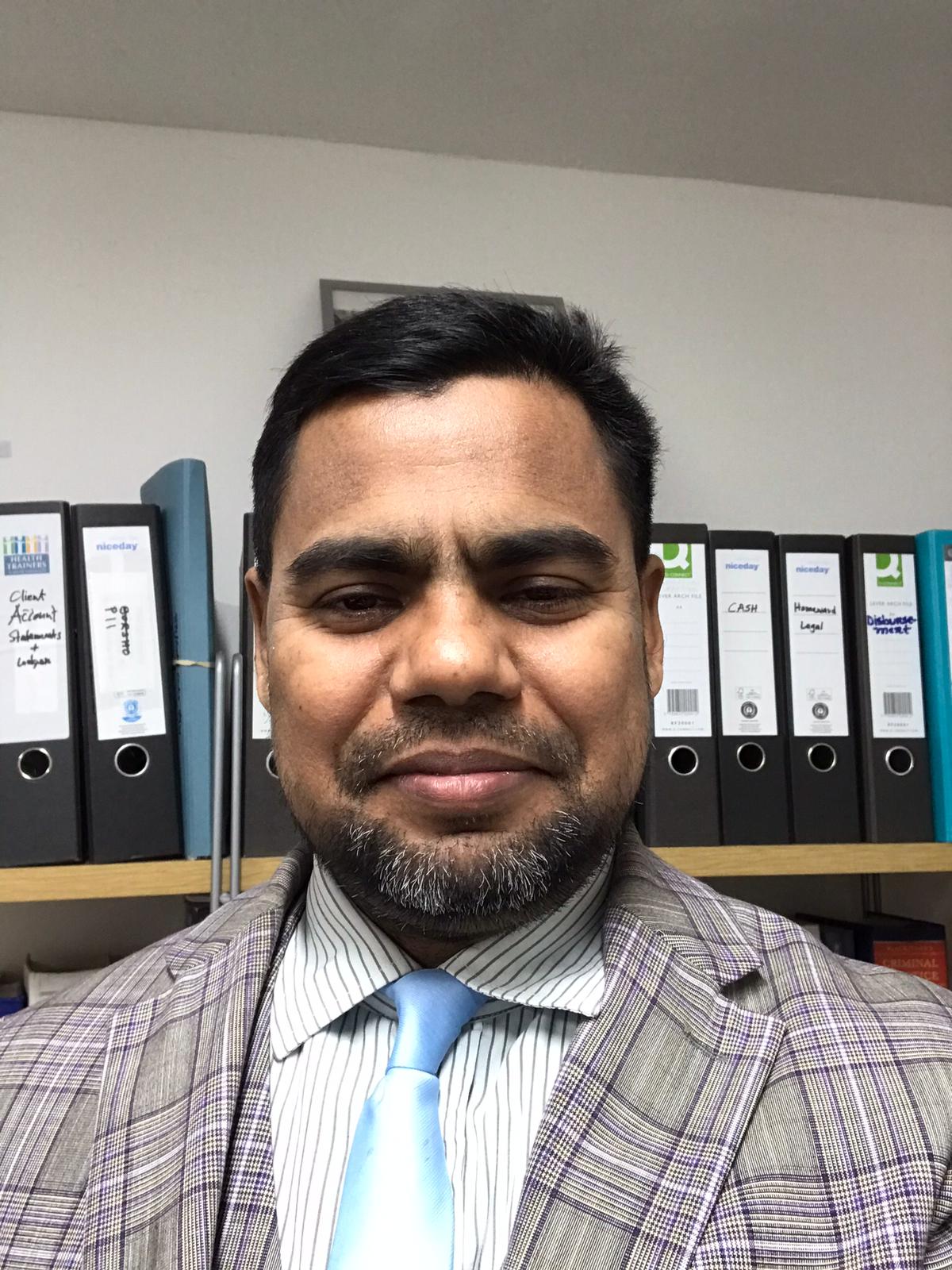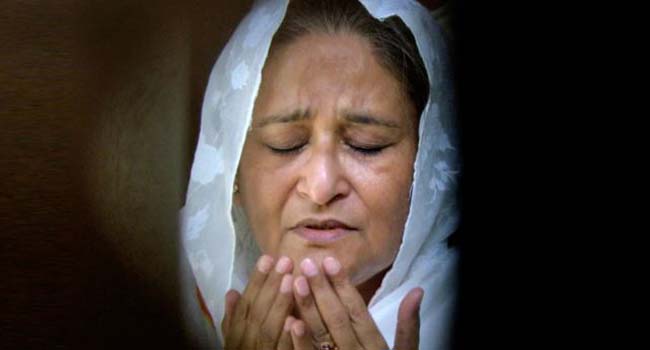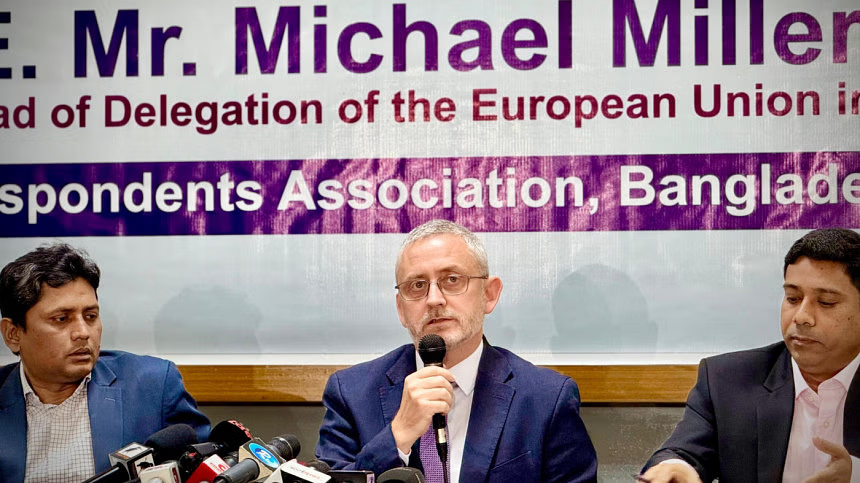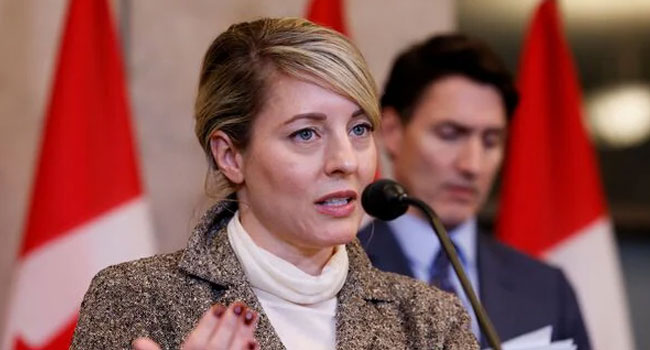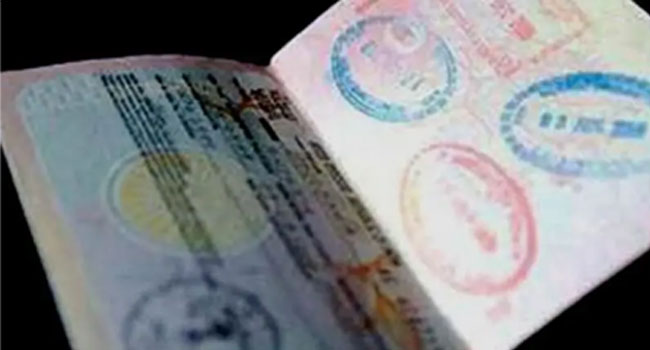After nearly two and a half months, Sheikh Hasina landed in Delhi in a military plane after being ousted from Bangladesh. Since then, he has not been seen in public for a single moment, no photos of him have been ‘leaked’ on social media, audios of various alleged phone conversations have been leaked, but there is no proof that they are his voice.
Since coming to India, he has practically vanished into thin air!
Indian government spokespersons, ministers or policy makers have not uttered a single word about her (or her accompanying younger sister Sheikh Rehana) since landing in Delhi. No press conference, no interview.
However, the Indian government officially and indirectly on Thursday afternoon (October 17) only said that he is still in India. As BBC Bangla reported last week that the news of Sheikh Hasina going to the Emirates or any Middle Eastern country is completely baseless, so at least now the Indian government is officially ‘confirming’ it.
While it is true that the Indian government has succeeded in maintaining complete secrecy over Sheikh Hasina’s stay in the country, Delhi is still completely in the dark about how long she will be kept in India.
“It’s going to be a long haul”, opined a top government official in Delhi’s South Block – who believes the government is now getting ready for the reality that Sheikh Hasina will have to stay in India for a long time.
So, as in the past, as the Tibetan cleric Dalai Lama or Afghan President Mohammad Najibullah’s wife and children were given ‘political asylum’ or political asylum by India, are similar steps being considered in the case of Sheikh Hasina?
In order to find answers to these questions, the BBC in Delhi spoke to officials from different levels and ministries of the Bengali government.
Firstly, in the eyes of India, Sheikh Hasina is a ‘guest, but under compulsion!’ That is, he is an honored guest of the state – who has to come to India under special circumstances. India knows very well that he came to India because his safety or security was threatened in his own country. Now in this ‘guest’ status he can be kept in the country day after day, month after month – India has no problem with that. As an old friend and guest of the country he will receive all due respect.
Second, if the situation is different later, something else can be thought of. But at the moment India has no plan to give political shelter or asylum to Sheikh Hasina. Most importantly, he himself never applied for asylum. But if such a proposal does come later, the Indian government knows that all parties in the country will agree on it and there will be no problem in building a political consensus to grant asylum to Sheikh Hasina. But now Delhi does not want to take any such step forward.
As a result, to put it in a word, for now India wants to give Sheikh Hasina ‘hospitality’ – not ‘shelter’.
Hasina in India: What do I know, what do I not know?
Last Thursday (October 17) at the regular weekly briefing of the Ministry of External Affairs in Delhi, spokesperson Randhir Jaiswal said, ‘You are aware of the former Prime Minister of Bangladesh’s stay in India…he had to come here at very short notice mainly for security reasons. He is still like that.’
Through this statement, he has at least informed that Sheikh Hasina is still staying in India. However, even after this, the answers to many questions about Sheikh Hasina still remain unknown.
Now the question is, how much is known for sure about Sheikh Hasina’s movements in the last two and a half months, and which ones can be dismissed as mere speculation or rumours? BBC Bengal’s own investigation says-
1) From the evening of August 5 till the time of publication of this report, Sheikh Hasina was always in India and remains in India. There was no question of crossing to any Middle East country or Ajman city of Emirates, he did not even press a plane to go to any third country. The news that he was sent back to India after waiting for hours on the plane is completely false.
2) It is also confirmed that he landed at Hindon Airport in Ghaziabad near Delhi on the evening of August 5, but was evacuated from there within the next two to three days. Hindon is basically an Indian Air Force base, there are no facilities for a VVIP guest to stay for a long time. So Sheikh Hasina has been moved from there to another location at the first opportunity.
3) Sheikh Hasina has been given a ‘Travel Document’ (TD) by the Government of India so that she can visit any third country if necessary. The Indian government, however, avoided commenting on the travel document – neither admitting nor denying the issue. As a result, Sheikh Hasina got TD from India, it cannot be said for sure.
4) Sheikh Hasina is still in India, although the government has confirmed that she is in the capital Delhi or not – but it is not certain. There are two speculations about where exactly Sheikh Hasina might be staying – a) Arrangements have been made to keep Sheikh Hasina with her at the residence of her daughter Saima Wazed, who works in Delhi as a regional director at the World Health Organization, and b) a paramilitary camp near Delhi in Meerut in Uttar Pradesh or Manesar in Haryana. He is staying in the army guesthouse or ‘safe house’.
The first of these has no basis, BBC Bengali has gleaned. But the second hypothesis may be true.
5) Sheikh Hasina was not even seen taking a morning walk in Delhi’s famous Lodi Garden in the last two and a half months, nor did she go shopping in any superstore in the capital. These are 100% rumours- no one has been able to show any picture to support these claims, no one has come forward with the claim that they saw him with their own eyes at those places.
6) Sheikh Hasina is kept in a very ‘safe’ location surrounded by tight security, she is not able to move around as she pleases – as it is true, it is not appropriate to say that she is kept under ‘house arrest’ or house arrest. As evidence, Sheikh Hasina’s personal phone access is still intact, she is in regular contact with her children who are in America or Delhi. Even, many of the party leaders who had his personal telephone number were able to contact him and talk to him.
7) But under the special circumstances that Sheikh Hasina had to come to India, after that any guest has to go through some ‘debriefing session’ and Sheikh Hasina was no exception. Now India’s top security officials have briefed him on what ‘do’s and don’ts’ he thinks he should say and what he shouldn’t say and take ‘notes’ from him – BBC It is also known for sure.
However, after all these things, the biggest question in the conversation of Bengalis in the premises of the recently concluded Durga Puja in Delhi was, did Sheikh Hasina get to eat hilsa in Bangladesh during the season full of hilsa?
Like many other questions about him, the answer remains shrouded in mystery!
‘Bin Bulaye Mehman’
There is a word in Hindi language ‘Bin Bulaye Mehman’ – means a guest who arrives at your house without invitation.
A senior official of India’s Ministry of External Affairs told the BBC, “Sheikh Hasina may actually have to move to Delhi ‘bin bulaya’. But there is no doubt that he is our guest!”
As a result, there is no room for India to be deficient in its ‘Mehmandari’ or hospitality.
A former Indian ambassador, Ajay Bisaria, also thinks that allowing Sheikh Hasina to stay in India could be a ‘delicate dilemma’ for Delhi. But to tell the truth, there is no other way in front of India except to keep him in this country with due status!
Almost all the analysts of this country’s diplomatic circles or international relations agree that India must stand by Sheikh Hasina at this moment of crisis. Because if it is not done, in the future, no leader of South Asia or any country in the neighborhood will be able to trust India’s friendship.
And the most honorable way of honoring that old friendship is to keep Sheikh Hasina in India for as long as necessary with the honor of a state guest.
Smriti Patnaik, a senior fellow at think tank IDSA in Delhi, reminds us that Sheikh Hasina was not technically granted political asylum when she and her family were granted asylum in India in 1975 after the assassination of Sheikh Mujib. Instead, the state kept him as a guest, keeping his identity a secret.
That decision was sealed by the then Prime Minister Indira Gandhi. Almost half a century after that incident, there are indications that today’s Narendra Modi government is taking exactly the same steps.
However, it was possible to keep Sheikh Hasina and her family members in Delhi for almost six years from 1975 to 1981 under a pseudonym and avoiding the attention of the media.
But even if the character of hospitality has changed, it still remains hospitality and Delhi feels that keeping him as a guest is the most acceptable solution for this diplomatic problem.
Many observers, however, believe that Sheikh Hasina’s presence in Delhi could become an element of uneasiness in relations between the new governments of India and Bangladesh.
For example, according to Avinash Paliwal, a professor at the London School of Economics and a writer-researcher of South Asian politics, “If Sheikh Hasina stays in India, it may not be a deal-breaker between the two countries. But it will complicate bilateral diplomacy!”
“If the person against whom there was a coup in Bangladesh gets shelter in India, it will certainly bring discomfort between the two countries and we can see the signs of that,” said Dr. Paliwal
If India gives political asylum to Sheikh Hasina in this critical situation, it will surely lead to more diplomatic turmoil.
Delhi thinks that Sheikh Hasina would be better off ‘staying the way she is’ – that is, in the status of a guest of the country and of course for as long as needed.
Despite all the pros and cons of asylum
, India may have to consider giving political asylum to Sheikh Hasina in the future.
In the past, India has given political asylum to many foreign leaders like Dalai Lama of Tibet, Mohammed Nasheed of Maldives or Mohammad Najibullah of Afghanistan.
Najibullah himself, however, could not come to India despite getting asylum. But his wife and children spent many years in Delhi.
When a high-profile foreign leader is granted asylum, it is usually announced in Parliament. Discussions are also done with different parties before decisions are made – although this is not mandatory.
As in the case of Dalai Lama, Prime Minister Jawaharlal Nehru himself announced the decision in Parliament in 1959 and Foreign Minister IK Gujral announced the asylum to Najibullah’s family in Parliament a few years later.
When Sheikh Hasina was in India for the first time (1975-81), it was not an ‘asylum’ on paper. As a result, there was no question of informing the Parliament.
But then she was just the daughter of Sheikh Mujib and now she is a former Prime Minister, who has been in power for almost 21 years in the history of independent Bangladesh.
As a result, some observers think that if such a political figure needs to be kept in India for a very long time, then at some stage ‘asylum’ may have to be considered.
A major advantage of granting political asylum to Sheikh Hasina is that no political party in India is likely to oppose the proposal.
He has good relations with both the ruling BJP and the opposition Congress. Narendra Modi or Sonia and Rahul Gandhi of the Gandhi family – he has developed a personal chemistry with all of them.
Sanjay Bharadwaj, professor of South Asia Studies at Delhi’s JNU, was saying, ‘It should be remembered that the decision to give shelter to the Dalai Lama was also opposed by the Communists of India, who were very close to China at that time.’
“But if the proposal to give shelter to Sheikh Hasina comes, it is quite certain that all parties in India will welcome it. Because there is a ‘broad consensus’ in the entire country that he is a tested friend of India.”
Another big advantage of giving political asylum to Sheikh Hasina is that any request to ‘extradite’ her or hand her over to Bangladesh can be turned away only on that argument.
That is, the decision has been taken out of the fear that the person to whom India has given political asylum may be a victim of political revenge in his own country. So there is no question of handing him over to them for trial.
Again, the disadvantage is that if Sheikh Hasina gets political asylum in India, India’s relationship with the Bangladesh government will definitely be bitter. Anti-India sentiment among a section of people in Bangladesh may also be fueled.
Since India’s investment and ‘stake’ in Bangladesh is hundreds of crores of rupees, it is a matter of seeing whether Delhi will increase the risk or not!
Arrest warrant and then
it is in this background that the International Criminal Tribunal (ICT) of Bangladesh has issued an arrest warrant against the ‘return’ Sheikh Hasina on October 17 and the Bangladesh government has also said that they will take swift action to implement this order.
If this warrant is to be executed within the stipulated one month, then it can be assumed that very soon the Bangladesh government will make a written demand to India to hand over Sheikh Hasina to them.
The Indian government, however, refused to comment on the arrest warrant on the same day (October 17). Spokesperson Randhir Jaiswal only said, ‘We have also seen these reports. But we have nothing to say about them.’
But before that, many former diplomats and analysts in Delhi told the BBC that they are sure that if there is a request to send back Sheikh Hasina according to the extradition agreement between the two countries, India will not accept it in any way and will waste time for years with a thousand arguments!
And formal granting of political asylum is not the only way to deny extradition requests, there are many other ways.
In other words, by keeping Sheikh Hasina in India as a state guest, it is possible to turn back that request.
This is why many observers in Delhi think that it is not very important that Sheikh Hasina is technically kept in any identity or status. What is more important is that India is ready to keep him for a long time.
In the words of Riva Ganguly Das, the former High Commissioner of India in Dhaka, ‘It is not a big deal whether he stayed as a guest or got asylum. The important thing is whether he is being kept in India with the respect he deserves or not.
As they say in English, a day is a day! It means whatever name you call a rose, it remains a rose.’
“Similarly, whether Sheikh Hasina gets asylum in India or stays as a guest, it doesn’t matter – she will remain Sheikh Hasina in the eyes of India,” Ganguly Das told BBC Bengal.
This is probably the biggest truth about Sheikh Hasina’s position in India this time!
